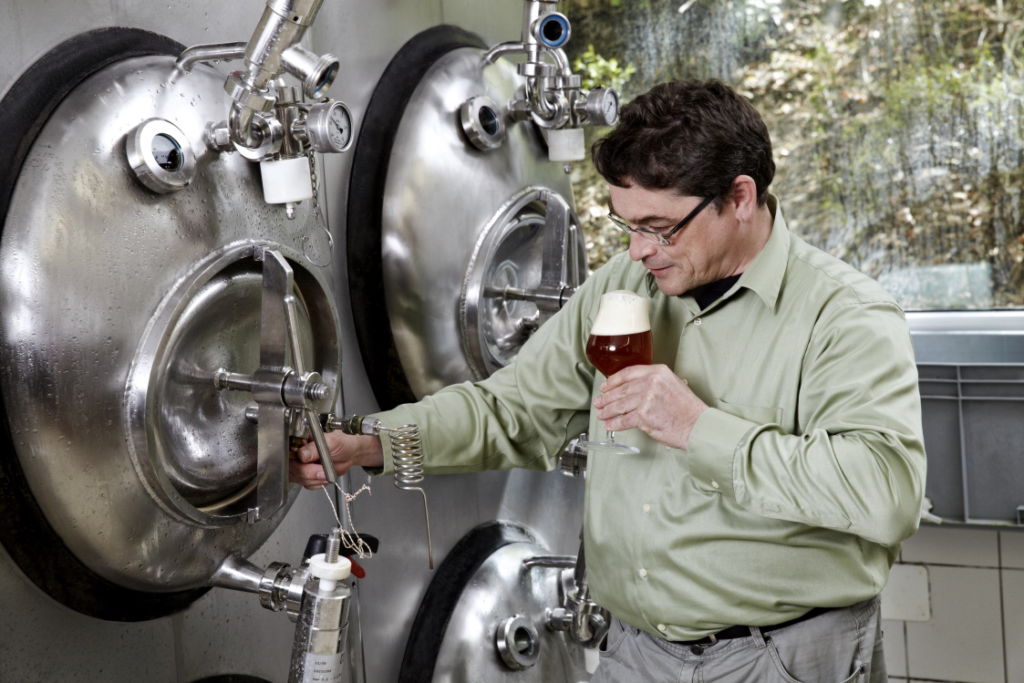News
E-Consulting gains popularity and is becoming essential
For Doemens, E-Consulting, i.e. “remote consultation” using electronic media functions such as video chat or screen sharing, is becoming increasingly important. Dr. Gerrit Blümelhuber, Head of the Consulting, Seminars and Services Division, explains the growing significance of this consulting service for Doemens.
Doemens: Dr. Blümelhuber, why is E-Consulting becoming increasingly important as a consulting concept?
Dr. Gerrit Blümelhuber: Companies often have issues that can be corrected in a very short time. In such cases, it makes sense to circumspect face-to-face consultation, as the cost of travel to and from the company can be considerable. So-called blended consulting, i.e. a mixture of E-Consulting and on-site consulting, often makes most sense. This way, face-to-face consultations can be optimized, the companies have time to collect any required documents or internal company information. And no valuable time is wasted and key information can be acted upon almost immediately.
Doemens: With too much reliance on E-Consulting, wouldn’t personal contact be missed and cases become more difficult to solve?
Dr. Blümelhuber: Of course, E-Consulting can’t replace face-to-face consultations completely. Personal contact and a personal basis of trust is essential in the consulting process. For this reason, E-Consulting is mostly offered to clients whom we know personally and with whom a relationship has already been established.Of course some problems simply require on-site consultation. Digital smelling is not yet up and running, and the correct analysis of sounds is very difficult to do via video chat. E-Consulting limits the consultation session to the speaking, hearing and seeing senses. So tasting the brews or sampling precursors is simply not an option in the digital environment.
Doemens: You mentioned Videochat, what other consulting “tools” does Doemens use?
Dr. Blümelhuber: In addition to classic video chats via the usual portals, we also work with mobile cameras, which enable us to take an “electronic” tour of the customer’s premises. This starts quite simply with a standard mobile phone camera, but can also be carried out with high-tech cameras, if, for example, special issues require additional technical aids (e.g. thermographic/endoscopic methods), during consultations in the storage cellar, for example.
Doemens: What would be the main advantages of E-Consulting?
Dr. Blümelhuber: E-Consulting is becoming more and more popular, especially with customers abroad, not only due to Corona, but above all due to reduced travel costs and much shorter waiting times before a consultation session can commence. If, for example, a company in southern Siberia has a problem, organising an on-site visit is very time-consuming. On the one hand, a letter of invitation has to be issued, then the visa applied for. Then flights have to be coordinated and sometimes the journey alone takes so long that you end up traveling for two full days. This can easily add up to two or three weeks before you can even react to the customer’s issue. With E-Consulting the work begins much faster. In principle, consulting can be started within just a few minutes. And with E-Consulting, the customer only pays for the consultant’s actual working time, not for additional down-time while he/she is in transit.
Doemens: In what other areas can Doemens profitably service its customers’ needs through E-Consulting?
Dr. Blümelhuber: In every area, actually. Choosing E-Consulting on its own makes sense, for example, in the case of issues concerning business organization or analytical problems. In other areas, E-Consulting is used to prepare for and follow-up with on-site appointments. There is hardly an issue that arises where E-Consulting cannot be used at all.
Doemens: Then please describe a successful, problem solving E-Consulting session!
Dr. Blümelhuber: A very nice example was the consulting of a brewery in the Far East, which wanted to put its entire quality management system to the test. Here, in a kick-off meeting via video chat, the project was first clearly defined and it was also agreed which documents the customer had to provide. In a second meeting, the documents were then optimized simultaneously and further questions could be clarified. The subsequent work was handled mainly at our own premises, together with experts for the individual areas of CTA and microbiology. After three weeks, results and recommendations were again shared with the client via video chat. He was also given assistance in implementing the recommended measures within his operation.
Doemens: The client was satisfied…
Dr. Blümelhuber: Yes! In a standard on-site consultation, it would have taken at least twice as long and cost twice as much.
Doemens: Do you benefit from the “Doemens Expert Pool” for dealing with a wide range of issues?
Dr. Blümelhuber: Even in the case of face-to-face consultations, our consultants naturally always benefit immensely from their “back office”. No one consultant is a “jack of all trades” – an absolute expert in every field. Sometimes it is necessary to rely on our expert pool, especially when a brewery raises several issues at once. With E-Consulting this process is even more efficient and much faster. You just add a colleague to the video chat and a variety of issues can be managed successfully.
Doemens: How is the success of a particular project actually monitored?
Dr. Blümelhuber: Assessing the success of E-Consulting is hardly different from the the same process used for on-site consulting. If a concrete problem arises, both contractual partners check whether the measures have taken effect and whether the problem has been solved. In some projects, such as the QM system overhaul described above, the assessment took place over a period of almost a year: for example, outcomes were compared and figures analysed. Of course, this was done electronically.
Doemens: In addition to E-Consulting, are webinars for training courses also valuable in terms of meeting the needs of Doemens customers?
Dr. Blümelhuber: Most certainly. A clear separation of training and consulting is not possible anyway. Frequently, results from consulting must first be implemented in the company. For this purpose, personnel must be trained. Webinars are an excellent delivery method and can be accessed at the convenience of participants. Also, the trainer is more independent and therefore creative. The advantages of E-Consulting are available in parallel. Still, it is always a pity when personal contact isn’t possible for any reason. This in no way reduces the efficiency of this form of training, however.
Doemens: How do you assess the significance of E-Consulting for Doemens going forward?
Dr. Blümelhuber: Although the catalyst for this trend is unfortunate, the Corona crisis has made many companies think more critically about topics like E-Consulting. While some technical managers used to believe that consulting by phone or via the Internet could not work at all and would not have any financial value, even these sceptics are now often convinced that E-Consulting can be of considerable help to their clients, especially when combined with on-site, followup visits. Accordingly, we anticipate an up-tick in this area of consulting in the near future.


